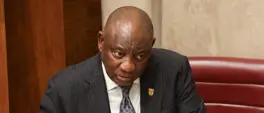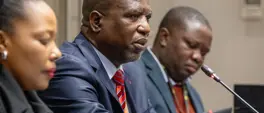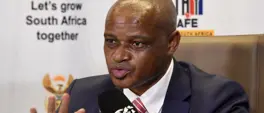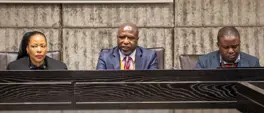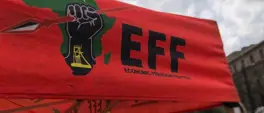MALAIKA MAHLATSI | Black men as victims of false rape accusations and as perpetrators of rape
Malaika Mahlatsi
4 July 2025 | 11:57'The fact of the matter is that Black women’s bodies are today, as they were during the trans-Atlantic slave trade, host antagonisms of structural violence,' writes Malaika Mahlatsi.
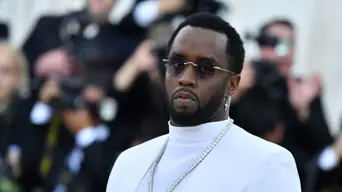
FILE: Sean 'Diddy' Combs arrives for the 2018 Met Gala on 7 May 2018, at the Metropolitan Museum of Art in New York. Picture: Angela WEISS/AFP
A few days ago, I had a heated debate with a friend of mine, who is a respected senior government official.
In celebrating the acquittal of American rap mogul and businessman, P. Diddy, on charges of sex trafficking that could have seen him spend the rest of his life in prison (he was convicted on a lesser prostitution-related offence), my friend argued that P. Diddy is a victim of a system that is intent on demonising and criminalising powerful Black men.
He mentioned several other Black men who had been accused or convicted of crimes, among them: comedian and actor, Bill Cosby; singer and music producer, Robert “R.Kelly” Kelly; former American professional football player, Orenthal James “OJ” Simpson; and award-winning kwaito star, Sipho “Brickz” Ndovu.
Cosby has been dogged by allegations of sexual abuse since 1965. By 2018, when he was found guilty of, and imprisoned, for aggravated indecent assault (a conviction that would later be overturned), more than 60 women had come forward with accusations of sexual assault against the actor.
Numerous of these accusations would make their way to civil court, where, as recently as 2023, a jury would find him guilty of sexual assault and order him to pay a fine.
Like Cosby, allegations of sexual abuse have followed R.Kelly for decades. Dating back to the 1990s, he was accused of the sexual abuse of minors.
In 1994, then 27-year-old R.Kelly secretly and illegally married 15-year-old singer, Aaliyah Haughton, to whom he had been a mentor. Many have argued that the marriage was a way for R.Kelly to avoid jail time for the statutory rape of a minor. It was annulled the following year by Haughton’s parents. R.Kelly would go on to marry his back-up singer, Andrea Kelly (nee Lee), who would divorce him 13 years into the marriage, citing physical and mental abuse.
In 1994, Simpson was charged with the murder of his former wife, Nicole Brown, and her friend, Ron Goldman, after they were stabbed to death in Los Angeles. Following a widely-publicised trial, Simpson was acquitted of the charge but would later be held liable for the wrongful deaths in a civil lawsuit brought on by the victims’ families.
Twelve years later, Simpson was charged and convicted of armed robbery and kidnapping and spent almost a decade in prison before being paroled. Simpson died of prostate cancer a year ago.
Brickz, who was once a dominant figure in South African music, is serving a 15-year prison sentence for the rape of a teenage girl.
According to my friend, these men are all victims of a racist system that destroys Black role models, particularly men. The aim, according to him, is to destroy the Black family and leave the Black community leaderless.
This is not a new argument, and such sentiments have been shared by many, particularly Black men themselves. Reacting to P.Diddy’s acquittal on sex trafficking charges, rapper Boosie BadAzz took to Instagram, where he shared a video captioned “GREAT DAY IN HIP-HOP”.
In the video, the rapper says: “I’m tired of seeing us Black moguls get took down like that…I’m tired of seeing us Black people go against us Black moguls like that…”.
False accusations of rape against Black men are not a myth. Consider the haunting case of 14-year-old Emmett Till, a young Black boy who, in August 1955, was brutally murdered after being accused of sexually violating Carolyn Bryant, a White woman, in a grocery store in Mississippi.
It would take six decades for Bryant to admit that she had lied. History is littered with similar stories – from the Scottsboro Boys who were wrongly convicted of raping two White women, to the Central Park Five, teenagers who, in 1989, were wrongfully convicted of brutally assaulting and raping a White woman who was jogging at a park in New York (the Netflix four-part mini-series, When They See Us, is based on this heartbreaking case).
Even today, such cases continue to come up, particularly in the United States. Human rights organisations such as The Innocence Project are working hard to exonerate Black men doing time for crimes they did not commit.
But two things can be true at the same time – that systematic racism has led to many Black men being falsely accused of crimes they did not commit, and that Black men are committing brutal crimes against women, particularly Black women.
Academic research and victimisation surveys in the United States reveal that to this day, sexual violence is disproportionately targeted against Black, Hispanic and indigenous women, and that the violence they suffer is too often ignored.
A study by the Ohio Alliance to End Sexual Violence contends that these women (referred to as “women of colour” are most likely to be raped by someone from within their own race, and that some individuals of colour believe or promote stereotypes that negatively impact the women who are sexually victimised.
The report posits that this is due in part to the internalisation of racism and sexism. It contends: “Many people of colour fear challenging internalised racism or sexism for fear of being ostracised as betraying their own communities and/or contributing to racism practiced by White individuals and systems”.
The pattern is the same in South Africa, where Black women are also most likely to be raped by someone from within their own race, with many sexual crimes being committed by perpetrators known to the victims.
By refusing to recognise that systematic racism against Black men does not negate the fact of their perpetration of sexual violence, mainly against Black women, my friend is subjecting millions of Black women’s trauma to erasure.
Such a narrative also positions perpetrators as victims, especially in cases like that of P.Diddy, Brickz, R.Kelly and many others who have been convicted of sexual crimes against women.
This demonises the actual victims, positioning them as collaborators in a system that criminalises Black men, and implying that they are “selling out” the Black race.
It is a dangerous argument that only serves to legitimise the abuse of Black women, while those harming them are accorded undeserved empathy.
Furthermore, such a message, repeated in private as was done by my friend, and in public as was done by Boosie BadAzz, serves to silence Black women – to render us apoplectic with fear at the possibility of being deemed a conveyor belt of White racism.
The fact of the matter is that Black women’s bodies are today, as they were during the trans-Atlantic slave trade, host antagonisms of structural violence. Racism that disenfranchises Black men, and patriarchy that benefits them, both play out on the bodies of Black women.
To pretend that this is not true is as dangerous as it is unjust. And if, as my friend insists, all these Black men accused of violating Black women are innocent, then we must necessarily ask the question: How many women must it take to be believed against one man?
Malaika, an award-winning bestselling author, is a geographer and researcher at the Institute for Pan African Thought and Conversation, University of Johannesburg. She is a PhD in Geography candidate at the University of Bayreuth in Germany.
Get the whole picture 💡
Take a look at the topic timeline for all related articles.





